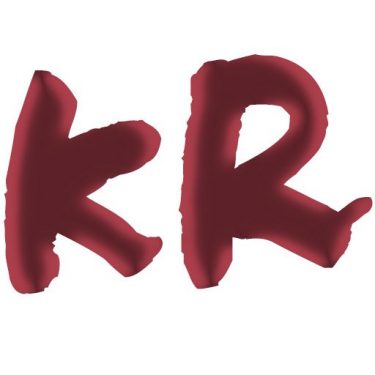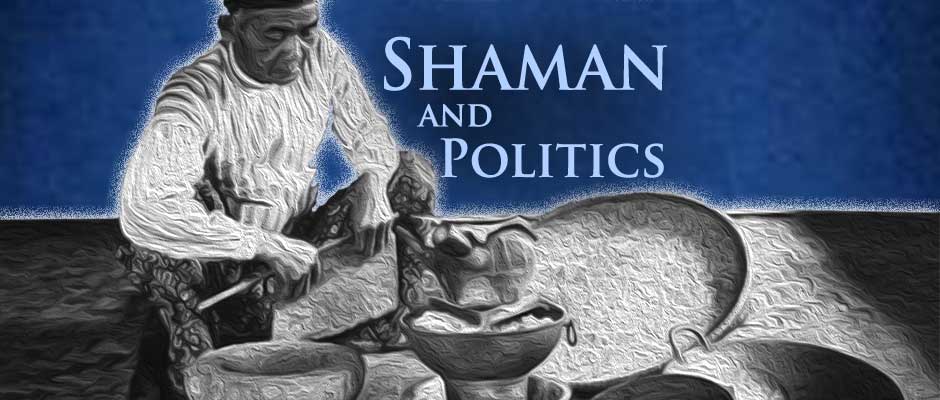Shaman during the New Order regime
Shamanism as a social phenomenon is not considered to be distant from Indonesian daily life. As a person that is believed to possess mystical power, a shaman uses his/her power, often secretly, for their personal benefit or upon one’s request. It could be meant as a way to help or heal, or the opposite, to raise fear and suffering for its victim.
In general, there are two types of shaman recognized in society: “white shaman” and “black shaman,” although one must bear in mind that this classification depends on the social context. “White shaman” refers to those who deliver “good” aims to help or heal, while “black shaman” refers to those who have negative or “evil” aims to hurt or even kill the victims.
Shaman could also be categorized based on their functions, such as: the prewangan shaman (connecting human beings and spirits), the midwife shaman (assisting childbirth), the siwer shaman (repelling bad luck), and the susuk (charm needle) shaman who promises to bring beauty, fame and respect by implanting in parts of the human body a sort of short needle made of gold, diamond or crystal. There are also jampi shaman who cure patients with their spells and herbs. There are also the santet/teluh/tenung (soothsayer) shaman who torture and harm their foes with magic. In other parts of Indonesia, there are various kinds of shaman: the leak shaman (in Bali), the minyak kuyang (magic oil) shaman (in South Kalimantan), and many others.
Meanwhile, the political shaman promises to deliver benefits and victory to their clients in the realm of the political sphere, especially in political contestation such as the direct election of regional leaders (Pilkada). As a phenomena in the realm of the political sphere, the shaman comes to exist parallel to the development of modern democracy in post independence Indonesia.
Although there is hardly any research on the phenomena of shaman in the politics of Indonesia, the political shaman has, in fact, a place in the political dynamics and has become one of the pillars of the inner circle during the New Order. In this grey area, local politicians were not the only player as Soeharto was considered as “the big man.”
Although political recruitment to become members of the inner circle of the time (1965-1998) was following a relatively simple pattern based on the so-called ABG (ABRI/Army, Bureaucrats, and the Golkar party), shaman still had a role to play. In fact, shaman had a special yet hidden seat. Moreover, the contemporary keyword was to earn a “blessing” from the ruler of the regime. As a result, shaman has a task to smoothen the client’s way to earn that “blessing” by finding out patterns and also actors involved in the closed New Order political system (interview with Mbah Lim, a psychic, in Sidoarjo, 17 January 2012). Shaman was considered important as a political whisperer. It was common to employ a shaman (or more) to eliminate either political opponents or allies who were deemed to have the potential to threaten the future regime. Ki Gendeng Pamungkas, a notorious santet shaman, admitted that he was often approached by politicians and those in power to perform santet that could take the life of a political opponent and even allies who were considered insincere.
The Soeharto’s leadership could be explained as part of the Javanese cultural leadership based on its mystical elements. However, as a social fact, his leadership was deliberately relying on some spiritual/mystical advisers. There were loyal shamans who “guarded” his leadership (Liberty, 1-10 June1998). There were at least “a thousand shamans” from all across the country who backed up Soeharto (Gelanggang Rakyat, 18 Oktober 1998). Romo Marto Pangarso, Romo Diat, Soedjono Hoemardani, Ki Ageng Selo, Soedjarwo, Darindrio, mbah Diran, and Eyang Tomo are a few known loyal shamans.
Furthermore, his leadership also received “legitimation” based on possession of magic amulet (ageman) and heavenly light (pulung) and some mystical powers (Vatikiotis, 2008). Rumors said he had at least 113 heirlooms from all across the country that supported his unbroken political leadership. According to Ki Edan Amongrogo, a psychic, Soeharto even possessed an important heirloom, i.e., the mirah delima (red pomegranate stone), that supported his tasks as a leader (Liberty, 1-10 June1998). It is evident that shaman, heirloom and Soeharto leadership were connected to each other like an inseparable shadow.
Shaman as Election Consultant
The fall of Soeharto in 1998 was followed by more open political recruitment through direct elections (year 2004) and the direct election of regional leaders (year 2005) – both are considered as the starting point for popular democratization – does not necessarily sterilize politics from shamanism.
Direct election allows the ordinary person to be a voter – for the first time in political history of the nation they become an important element in political calculations. In this context, polling institutions act as the main reference in the process of political recruitment. Five big political parties, i.e., Golkar, PDIP, PAN, Partai Demokrat and PKS, have relied on the results of polls as a reference in the process for nominating party candidates for elections.
Since 1998, a lot of politicians have viewed polling as an effective instrument to detect public opinion or voters’ behaviors in political contestation. Polling assists a candidate to win the contest, reveals the level of support they would receive from society, and maps society’s expectation from them. Polling is also supposed to help a candidate to seize power in the context of modern democracy in post New Order Indonesia.
The focus on the rational-objective element of political contestation assumes that shaman has no place anymore. However, in fact, shaman, still holds an important role in political contestation, especially in the direct election of regional leaders. Moreover, shamanism has forced the Vice minister of religious affairs to warn that such practice in the election of regional leaders would deteriorate religious values and as such it is considered as idolatry (shirk) (see: http://www.kemenag.go.id/index.php?a=berita&id=86648 – in Indonesian).
The role of a shaman in politics – either based on the request of the candidate or the candidate’s campaign team – is similar to other political consultants. As such, there is a kind of ‘division of labor’ between the polling institutions (the poll-based political consultant) with the shaman. While the polling institution would measure popularity and acceptability, the shaman would rely on the pulung. While the polling institution would raise the candidate’s electability, the shamans raises the candidate’s charisma and prestige. While the polling institution would map the voting behavior, the shaman maps the party’s internal constellation and identifies who are insincere and trusted allies. While the polling institutions would openly announce its polling result as a way to invite the bandwagon effect, the shaman would whisper magic spells in silence to invite blessings and good luck. While the polling institutions would employ multistage random sampling and interviews as its method to obtain data, the shaman would call a pray for the spirits to obtain future sight. While the polling institution would give advice on strategic campaigns to win, the shaman would implant the susuk and apply minyak kuyang to make the candidate look more charismatic. In the end, although the candidate and their campaign team would seriously listen to the advice from the polling institution, they also pay deep respect to the advice of the shaman.
A 62 year old local shaman from Sidoarjo (East Java), mbah Lim, admitted that almost all of his clients are politicians. Mbah Lim is a shaman with the specialist to “guard” the candidate in the election of regional leaders, and his ‘operational areas’ cover not only in East Java, but also include Central Java and West Java. Mbah Lim confessed;
I have been requested to garnish and ‘fence off’ the candidate and his family from witchcraft and disturbance from his political opponents…. ever since we had the direct election of regional leaders, I have become very busy and decided to take early retirement from my work at a state owed-enterprise, because I have received a lot of requests to guard the election and in fact, it is more financially promising.
For a regional election in West Java a few years back, mbah Lim performed a ritual at the Galunggung mountain for 21 days, starting from the campaign day until the day of election ended (interview with mbah Lim, 17 January 2012).
Elma Tara Elbaar, an anthropologist of shamanism, mentioned that the role of shaman in political contestation has become very extensive and reaches even the polling station in many regional elections. Four years ago, on the election of a regional leader at the Gunung Mas regency (South Kalimantan), a shaman was performing rituals at the polling station. On election day, while the KPPS (the polling station staff) was arranging the election and the polling institution was projecting the election results through a quick count and exit polls methods, the shaman was performing rituals to neutralize the polling station from the influence of magic that might alter the voting result. A night before the polling station was opened to use, the shaman walked around it to scatter yellow rice and salt, and spill the blood of black feathered chickens. There were also woods with mandau knife (sword-like knife found in Borneo) in yellow clothes stuck in to the ground all around the polling station – a sign that the ‘shaman of the four cardinal points’ was performing his ritual to secure the polling station (interview with Elma Tara Elbaar, 6 August 2012). Interestingly, members of society seem to accept and understand the role the shaman plays and his performance in the polling station.
Although shaman seems accepted by the society, the political candidate and their campaign team never want to show to the public that they employ a shaman for political purposes. They want to maintain the public’s perception that the politican’s image is free from committing the sin of idolatry (shirk), unconfident, and controlled by irrational factors. Nonetheless, it does not mean that the public could not work out if a shaman was involved in political contestation. One simple way to check if a shaman has played a role in the winning of a political candidate is to observe their activity after the election. A shaman would require the winning candidate to hold certain sacred ceremony, in order to settle their vow. Thus, the sacred ceremony that is performed after the election is a simple indication of the involvement of a shaman in the political contestation (interview with Gundik Gohong, 6 August 2012).
Conclusion
The political stage is an open arena for politicians to compete for power. In the Indonesian context, harsh competition has created many different ways to win, including the involvement of shaman. The extensive magnitude of shamanism in direct elections (especially in the direct election of regional leaders) is caused by, at least, three main reasons.
First, the high level of competition and the complexity of the regional elections. Second, the low level of trust of the candidate and their campaign team in the election organizers (such as KPU, the election commission, Panwaslu, the monitoring committee, KPPS and the polling station staff). Third, shamanism has existed long before modern political consultants entered the political stage and as a cultural phenomenon, it is accepted in the society.
Therefore, discussions on political contestation in Indonesia should provide a space to review elements that are considered traditional, grey areas or even irrational. Placing shamanism as a stowaway on the train in the process of modern politics in Indonesia, somehow, denies the subtlety of political nuances and complexity in Indonesia.
Agus Trihartono
This articles is a translation of the original which was written in Bahasa
Kyoto Review of Southeast Asia. Issue 12 (September 2012). The Living and the Dead
Reference
Vatikiotis, Michael. Farewell to the Smiling General Reflections on Soeharto. Global Asia, Vol. 3, no. 1, Spring 2008
This articles is a translation of the original which was written in Bahasa

